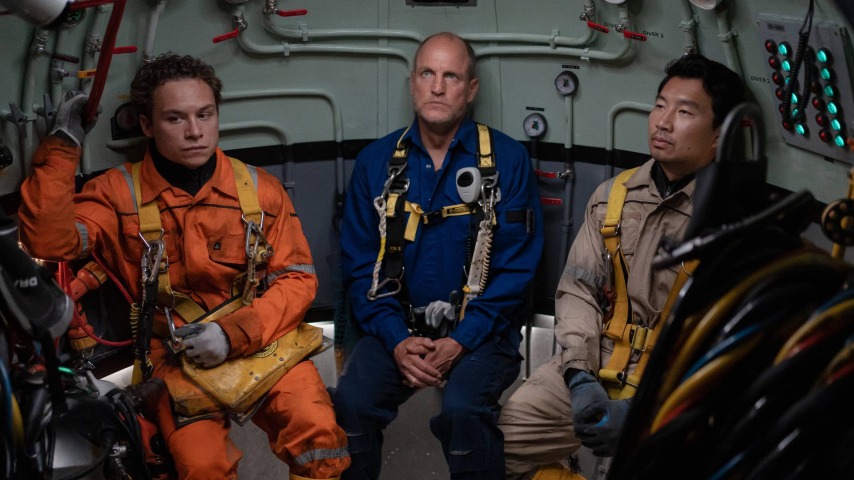Last Breath turns a real death-defying diving accident into a brisk thriller
Alex Parkinson adapts his own documentary about Chris Lemons' miraculous survival.
Photo: Focus Features
Thirteen years ago, saturation diver Chris Lemons was performing routine (though exceedingly dangerous) work on a pipeline at the bottom of the ocean, 330 feet below the surface, when the umbilical cord connecting him to his diving bell was snagged and severed. The race to find and rescue him concluded with Lemons’ brain deprived of oxygen for 30 minutes. Though he had a pulse, his vacant eyes led his co-divers to assume he’d been left in a vegetative state—until he spoke, as plain as day. Richard da Costa and Alex Parkinson’s 2019 documentary Last Breath looked into this real-life, death-defying tale whose details still evade clear answers. It’s a heroic yarn of human endurance ripe for a Hollywood spin, which is exactly what Parkinson has now undertaken with his dramatized take on the survival story, bearing the same name. A pulse-pounding, high concept bio-drama, Last Breath is a commendable technical feat, though its melodrama falls short.
In the thriller, Scottish diver Lemons (Finn Cole) prepares to go out on his next job fixing a pipeline on the ocean floor. He is betrothed to Morag (Bobby Rainsbury), who takes a much less blasé approach to her fiancé’s line of work. Every time Chris goes on a dive, there is a chance that he will never come back. Saturation diving is one of the most dangerous jobs in the world, as an info scroll helpfully explains at the start of the film. Not only do divers have to descend great depths into the ocean, but they have to be slowly decompressed in their ascent back to the surface, a process that can take days. But any potential echoes of the horrific Byford Dolphin incident hold no bearing on what happened to Lemons: while performing his job alongside David Yuasa (Simu Liu), their support vessel’s dynamic positioning system fails during a powerful storm. This causes the boat to drift into harsher waters. Lemons’s safety cord catches and eventually snaps, dragging him out into the abyss of the ocean floor.
With no way to track Lemons, the support vessel’s captain and its dive supervisor, Andre and Craig (Cliff Curtis and Mark Bonnar, respectively), struggle to even search for the man whose oxygen supply is now a countdown timer. At the diving bell, veteran diver Duncan (Woody Harrelson) is virtually powerless in the face of this unprecedented accident. So ensues the bulk of this brisk 93-minute race against the clock, as David and Duncan attempt to work what magic they can underwater while the support vessel’s crew attempts their own. Parkinson and his co-writers David Brooks and Mitchell LaFortune turn it into a real nail-biter, as the depleting oxygen store is eventually usurped by the amount of time Lemons has been underwater with no oxygen at all. The minutes tick by gradually, to anxiety-inducing effect.



















![HBO teases new Euphoria, Larry David, and much more in 2026 sizzle reel [Updated]](https://img.pastemagazine.com/wp-content/avuploads/2025/12/12100344/MixCollage-12-Dec-2025-09-56-AM-9137.jpg)




















